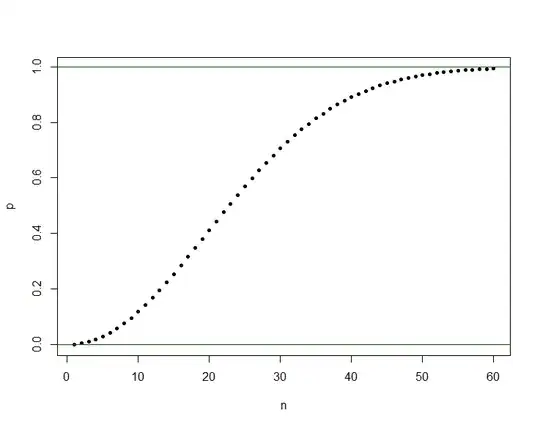I will be presenting to a large crowd of about 2,000 people on how our intuition does not align with reality in many situations, as I've always been impressed with how statistical analysis can show us how the world really works, to get us to accept that our intuition on probability can be way off.
What I'm looking for is
Suggestions on specific questions/riddles or situations that I can give to this crowd that would demonstrate this in the most impressive way by them actually answering the questions & the result being counted right there
Some suggested Statistical Mathematics applied to that problem, to demonstrate a likely expected (with, let's say 80% confidence, or whatever would be more appropriate) end-result given a sample size of N, so I can know ahead of time the number I should expect the result to be close to.
The tone of this event doesn't allow me to give any Mathematical explanations, so a demonstration would be more powerful to illustrate the point. As such, questions I'd ask the crowd would need to be straightforward for most people to follow and to allow for a show of hands to be counted, or for them to have discussions with those around them (in groups of x, that could be defined in outlining the problem). I'll have about two dozen helpers to potentially count hands or to ask groups what the result is, and we'll be doing it quickly, so precision can be sacrificed for the sake of simply getting an impressive final result.
The classic example that demonstrates this well for explanatory purposes (without relying on an actual live implementation) would be the birthday problem, but that only needs 23 people for the odds to be over 50/50 of the same birthday, and even if you tested it on a group of 23 people, doing it once will be a bad way to demonstrate your point because of how probability actually works meaning that maybe there won't be that shared birthday this time. But with a large group of people, we can be more confident to get close to a particular number.
At first, I thought that I could scale up the birthday problem and simply ask a small number of questions to get to the most common birthday for the entire crowd, but in posing another question here to see what the expected number may be, I'm reminded why I'm asking here in the first place in how rusty my statistics knowledge is, given that doing so would face the law of big numbers and actually give the intuitively (much less impressive) expected result.
I could, of course, give a simple twist to a classical probability situation, such as the Monty Hall problem, by getting a show of hands for who would do what, or who would expect what odds. That result won't be as impressive though since the large number isn't really a result, so much as psychological proof that most people's intuition is off. If nothing else works, I'd do this and simply explain the issue, but that would work for a small crowd just as well, and I'd like to take advantage of having such a big audience, and having the law of big numbers work for me to be confident on getting a particular result or very close.
Here are a couple of my quick ideas on doing this, but I'd like to see if someone can give me a demonstrable proof of one of these or another demonstration you may have in mind, which would give a large final result, where intuition (for the layperson unfamiliar with statistics) may not expect it:
- Attempt to split the crowd into groups of approximately 23 (or slightly higher if seating arrangements make that easier), and to give them 2 minutes to figure out if there are any shared birthdays. When they are finished, count the number of successes, which should be approximately half (about 43 of ~87 groups that would form). [Would this work as expected, or am I forgetting something?]
- The top answer on this question has multiple interesting suggestions that I'll be looking into to see which could be most entertaining, but can we find an expected answer given my criteria, and from that, know which one is going to be most impressive?
